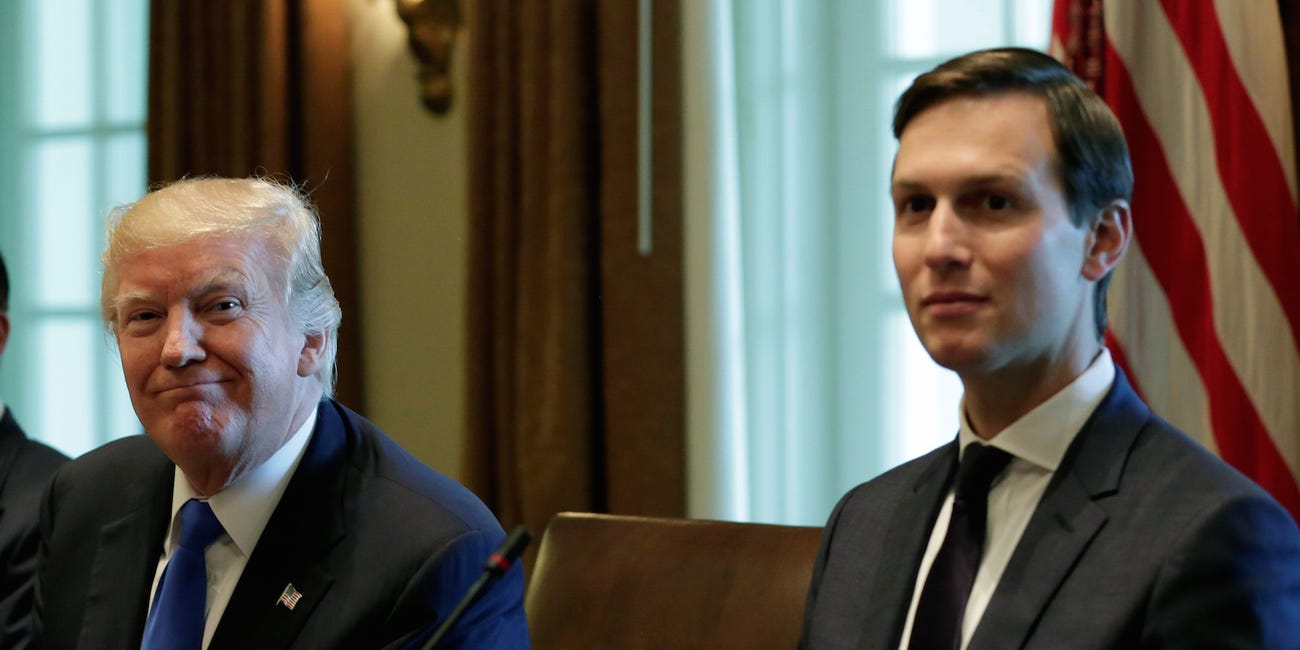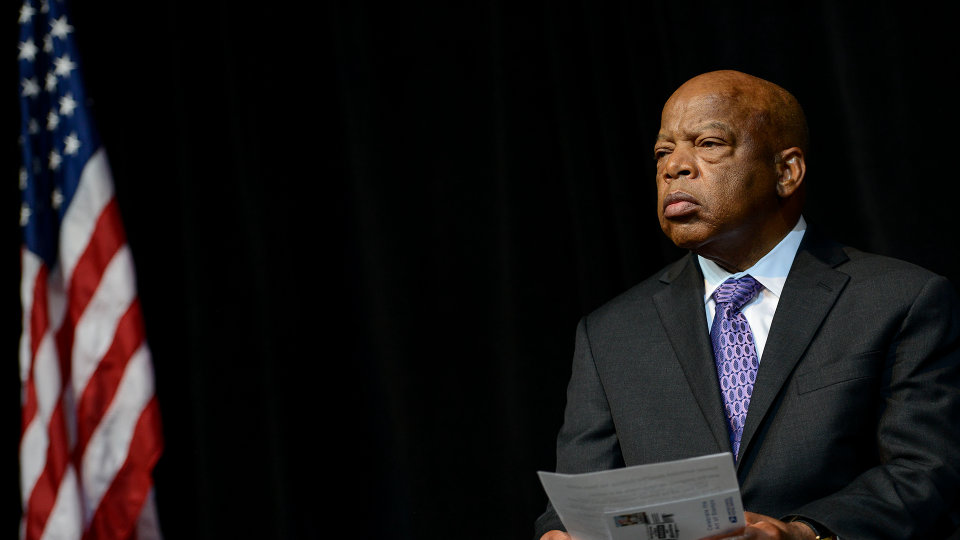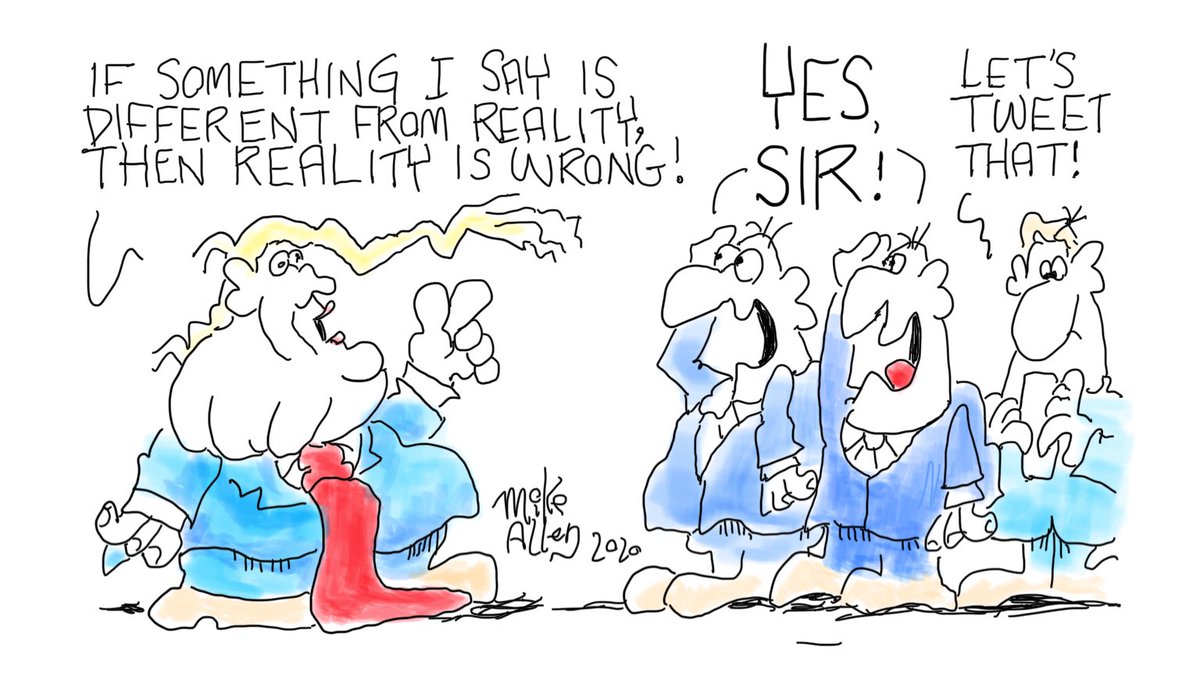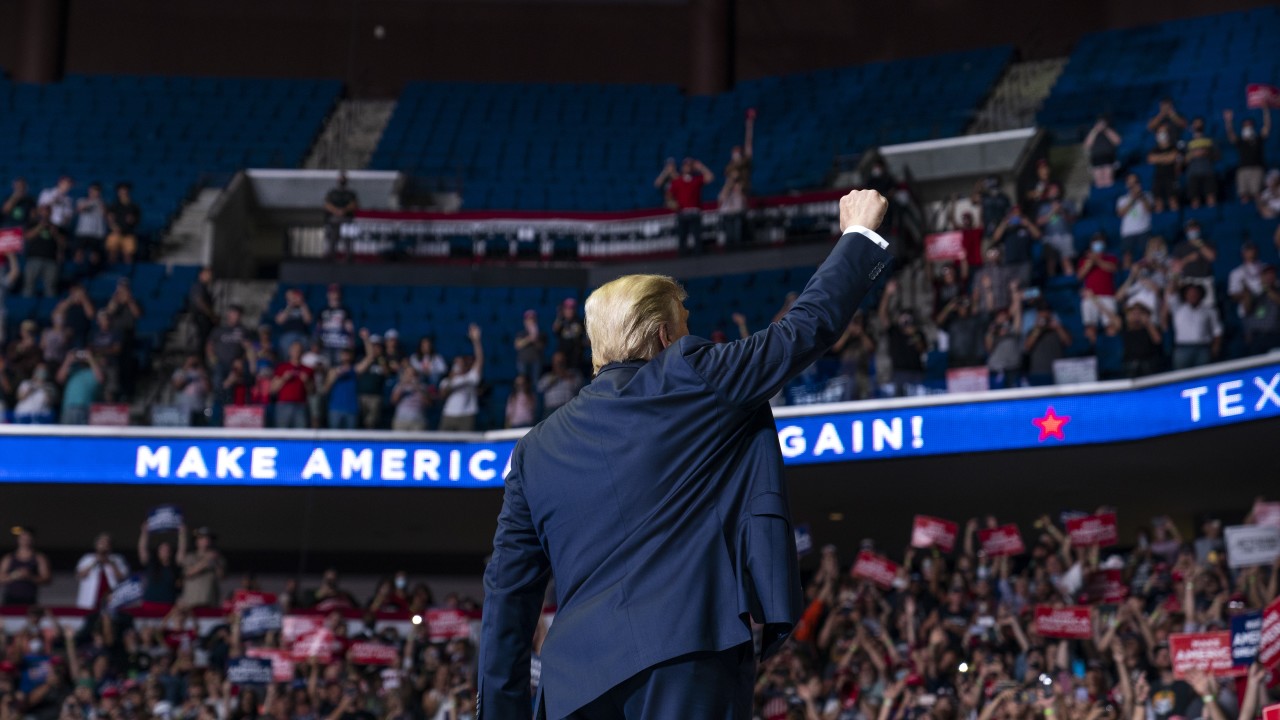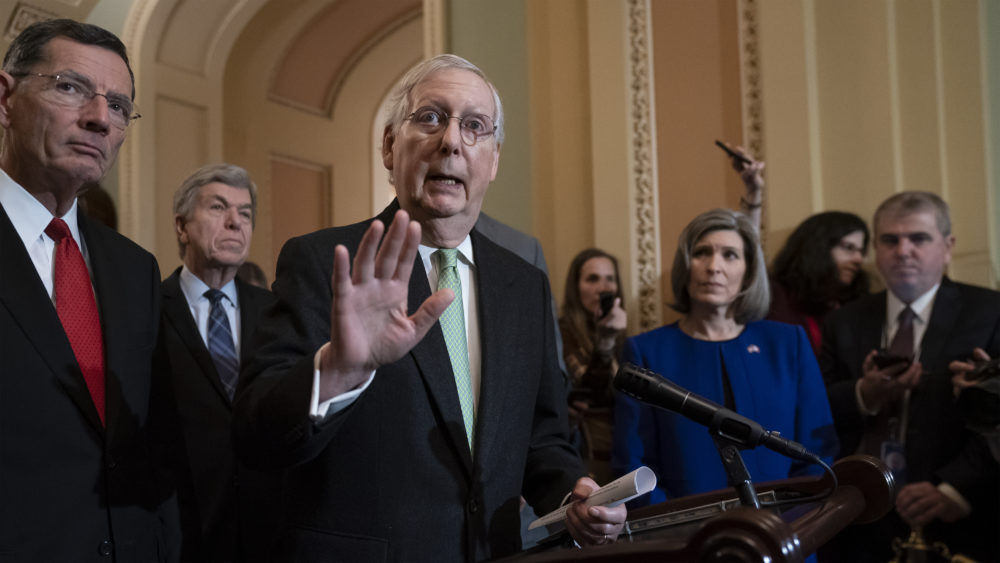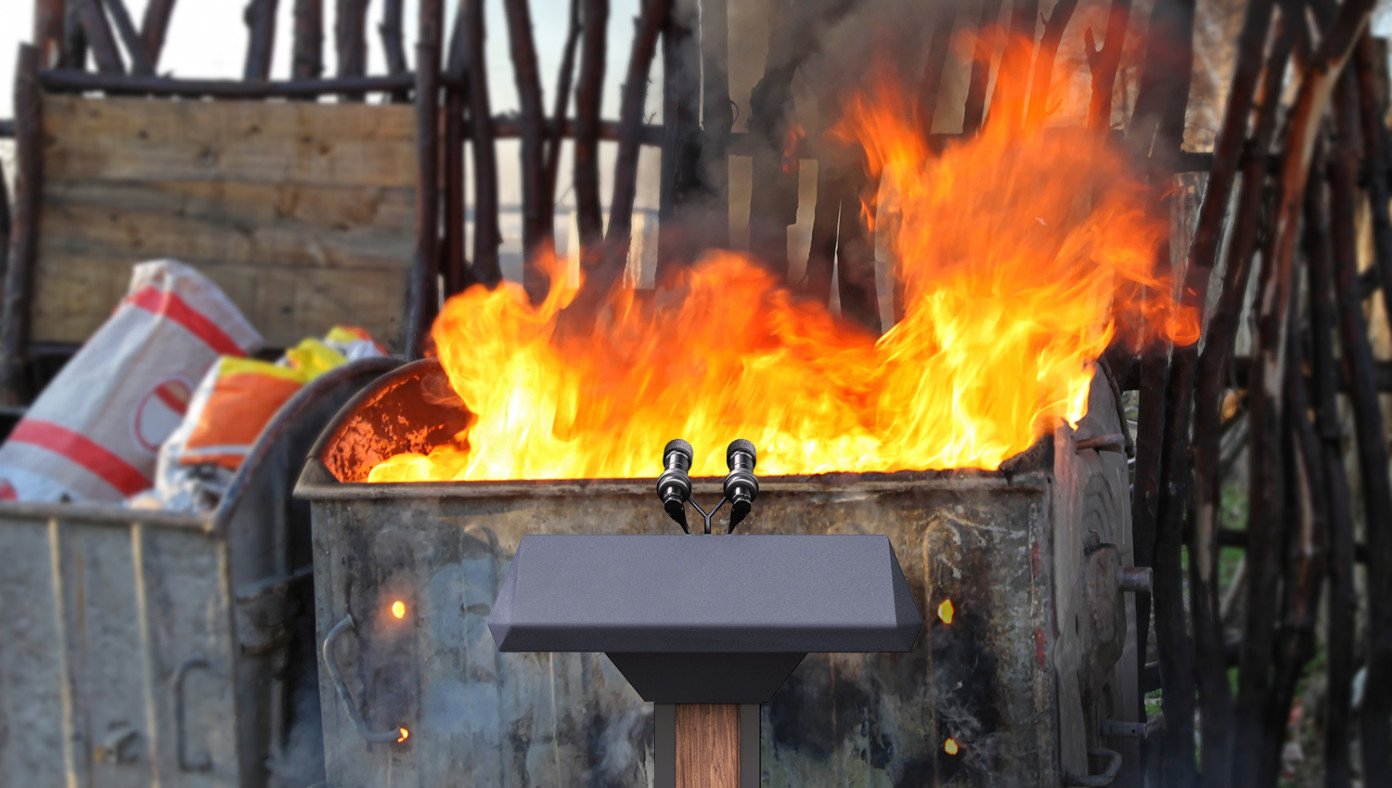In the New York Times, Jim Tankersley asks, Does Trump Want to Save His Economy?
The United States just suffered its worst economic quarter in nearly 75 years. Its recovery from the depths of a pandemic-induced recession has stalled, as coronavirus deaths rise again across the country. President Trump has what appears to be one final chance to cut a deal with Congress to ensure hard-hit workers and businesses do not collapse before the November election.
He has shown little interest in taking it.
Rather than push for a comprehensive plan that could win support from both Democrats and Republicans, Mr. Trump has instead embraced big-ticket items that Senate Republicans did not want and that would do little to help millions of struggling workers and businesses.
That included a payroll tax cut and an expanded tax break for business lunches, along with $1.75 billion to rebuild the F.B.I.’s headquarters in Washington. He has derided efforts to find middle ground with Democratic leaders on a broad economic rescue package, declaring on Wednesday that “we really don’t care” about several possible parts of it.
And so on. To answer the question, I suspect Trump wants passionately to fix “his” economy. But it was never “his” economy; he has just been coasting on Barack Obama’s economy. Nothing Trump has done, including the massive tax cuts, have been particularly advantageous to the economy or changed any trajectories for the better. And now that the pandemic has tanked the economy, Trump has no idea what to do to fix the economy. He really doesn’t. He has no idea how any of this stuff works. It’s pointless to pretend otherwise.
Nothing will “work” as long as the pandemic is out of control. There’s a fascinating piece at Vanity Fair that I recommend. It’s not behind a firewall. In How Jared Kushner’s Secret Testing Plan “Went Poof Into Thin Air,” Katherine Eban writes that Kushner and some of his privileged trust fund buddies spent March and April putting together a national testing strategy.
Inside the White House, over much of March and early April, Kushner’s handpicked group of young business associates, which included a former college roommate, teamed up with several top experts from the diagnostic-testing industry. Together, they hammered out the outline of a national testing strategy. The group—working night and day, using the encrypted platform WhatsApp—emerged with a detailed plan obtained by Vanity Fair.
Rather than have states fight each other for scarce diagnostic tests and limited lab capacity, the plan would have set up a system of national oversight and coordination to surge supplies, allocate test kits, lift regulatory and contractual roadblocks, and establish a widespread virus surveillance system by the fall, to help pinpoint subsequent outbreaks.
This was all being done without coordination with the government officials tasked with taking care of testing, and it’s likely Kushner’s merry band of entrepreneurs got in the way more than they helped. Even so, they did come up with a plan. But the plan was never announced. In the words of one participant, it went “poof into thin air.”
By early April, some who worked on the plan were given the strong impression that it would soon be shared with President Trump and announced by the White House. The plan, though imperfect, was a starting point. Simply working together as a nation on it “would have put us in a fundamentally different place,” said the participant.
But the effort ran headlong into shifting sentiment at the White House. Trusting his vaunted political instincts, President Trump had been downplaying concerns about the virus and spreading misinformation about it—efforts that were soon amplified by Republican elected officials and right-wing media figures. Worried about the stock market and his reelection prospects, Trump also feared that more testing would only lead to higher case counts and more bad publicity. Meanwhile, Dr. Deborah Birx, the White House’s coronavirus response coordinator, was reportedly sharing models with senior staff that optimistically—and erroneously, it would turn out—predicted the virus would soon fade away.
Against that background, the prospect of launching a large-scale national plan was losing favor, said one public health expert in frequent contact with the White House’s official coronavirus task force.
Most troubling of all, perhaps, was a sentiment the expert said a member of Kushner’s team expressed: that because the virus had hit blue states hardest, a national plan was unnecessary and would not make sense politically. “The political folks believed that because it was going to be relegated to Democratic states, that they could blame those governors, and that would be an effective political strategy,” said the expert. [emphasis added]
So, instead, Trump dumped the responsibility for testing onto the states. You know the rest of the story. Seriously, none of these geniuses apparently grasped that viruses spread. Dr. Anthony Fauci testified to Congress this morning:
The Trump administration’s decision to leave coronavirus shutdown decisions to the states created a patchwork of policies that effectively only imposed restrictions on about half of the country, NIH infectious diseases expert Anthony Fauci told a House hearing on Friday.
There’s also a long bit in the Vanity Fair article about a March requisition from the White House for 3.5 million tests from the United Arab Emirates, which was invoiced at $52 million. The order didn’t go through the usual government purchasing channels, so the invoice cannot be paid. Plus the tests were all contaminated, possibly because they were shipped without being refrigerated. Amateur hour all around.
We don’t know that Jared Kushner had anything to do with ordering the tests from the UAE, but this kind of cowboy “the hell with procedure” stuff is his standard modus operandi. I do wonder if these were the “millions of tests” that Mike Pence kept promising last March that never arrived anywhere.
Yesterday the White House announced a new initiative to address the pandemic. It’s called the “embers strategy.” Axios:
The Trump administration is sending increased personal protective equipment, coronavirus test kits and top health officials like Drs. Anthony Fauci and Deborah Birx to coronavirus hotspots across the U.S. as part of a campaign called the “Embers Strategy,” White House officials tell Axios. …
… Public health surrogates will appear on local and regional television and radio to educate the public on mitigation tactics, including wearing masks, practicing social distancing, frequent hand washing and staying home when ill.
*They will focus on areas reporting positive rates between 5% and 10% to prevent them from slipping into a “hot zone” category of above 10% positive rates.
*The Trump administration is expecting to land around 200 media segments over the next two weeks, as Axios reported on Sunday.
Seriously? That’s the plan? This is supposed to reassure people that Trump is “refocused” on the pandemic, the article says. Seriously?
Going back to the Vanity Fair article, although the U.S. is testing more that it was, that’s still not enough, especially when results take too long.
Though President Trump likes to trumpet America’s sheer number of tests, that metric does not account for the speed of results or the response to them, said Dr. June-Ho Kim, a public health researcher at Ariadne Labs, a collaboration between Harvard’s T.H. Chan School of Public Health and Brigham and Women’s Hospital, who leads a team studying outlier countries with successful COVID-19 responses. “If you’re pedaling really hard and not going anywhere, it’s all for naught.”
At WaPo, Greg Sargent discusses the “embers” analogy.
The imagery of embers may seem unthreatening and even comforting. Indeed, that’s almost certainly the point — to create the impression that what remains of the coronavirus is a gentle glow here and there that you associate with your childhood camping trips.
Indeed, it would be surprising if this language hadn’t been poll-tested up the wazoo. The White House has tentatively been experimenting with this embers language for some time: Trump tweeted in June that our economy was vaulting back, and that any coronavirus “embers” would be “put out as necessary.”
And even earlier than that, Vice President Pence approvingly told governors that Trump has been describing what remained of the virus as “embers,” which was supposed to be persuasive and reassuring to them.
Since then, of course, the coronavirus has once again surged in many states across the country, especially in places such as Arizona, Florida and North Carolina, which will be crucial to Trump’s reelection hopes. At the same time, Trump continues to urge a rapid reopening.
In other words, the analogy is more about reassuring people that the pandemic is being taken care of rather than providing an accurate picture of the mess we’re in, or coming up with a plan for how to get out of it. Because they don’t know how to get out of it.
And while Trump wants to delay the election because of the pandemic, sending the kids back to school will work out just fine, they tell us. We are so screwed.
Going back to the economy — the economy is screwed for reasons that are bigger than Trump, of course. A big chunk of the Republican Party in Congress won’t do anything to save the economy because all of the fixes go against their beloved ideology.
Trump, his officials and their allies in the Senate have been totally committed to the idea that the U.S. economy will experience a stunningly rapid recovery despite the wave of new infections and deaths. They bought into that view so completely that they seem incapable of taking on board the overwhelming evidence that it isn’t happening.
Just a few days ago Larry Kudlow, Trump’s top economist, insisted that a so-called V-shaped recovery was still on track and that “unemployment claims and continuing claims are falling rapidly.” In fact, both are rising.
But because the Trump team insisted that a roaring recovery was coming, and refused to notice that it wasn’t happening, we’ve now stumbled into a completely gratuitous economic crisis.
Kudlow, Trump’s chief economic advisor, is an amateur. He somehow became known as an economist even though he has no graduate degree in economics and is always wrong. “He’s a die-hard supply-sider for whom corporate tax cuts are the highest goal,” it says here. See also “A Used-Car Salesman, Both in Demeanor and Honesty”: Wall Street Isn’t Sold on Larry Kudlow’s Economic Delusions by William Cohan.
See also the New York Times editorial board, Mitch McConnell Could Rescue Millions. What Is He Waiting For? Bascially, they’re waiting for reality to reflect their ideology. As long as it doesn’t, they cannot act. They don’t know what to do.
